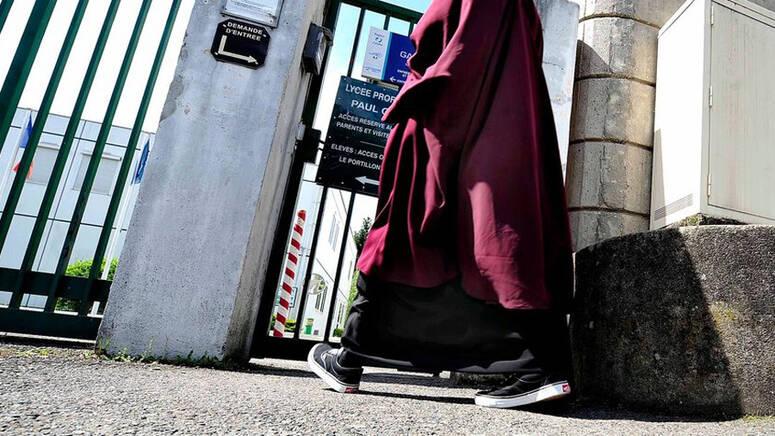
The French government considered the controversial decision of National Education Minister Gabriel Attal to ban the wearing of the abaya in public schools as a response to the need to confront a “political attack” targeting secularism, as well as to the demand of school principals, who called for issuing clear directives on this issue.
French government spokesman Olivier Veran confirmed in statements to BFMTV on Monday, August 28, that there will be no place for the abaya in the country’s schools, and that this is exactly what the Minister of Education meant when he spoke of a united front.
Olivier considered that the abaya is a form of “proselytism” and contains a political signal that reveals a “political attack” on secularism.
The government spokesman revealed a plan that extends until the year 2025, and includes training 300,000 employees annually on issues of secularism, provided that by the end of this year, 14,000 government administrative employees will be trained on the same issue.
In a statement to TF1, French Minister of Education Gabriel Attal announced on Sunday, August 27, that he would “ban the wearing of the abaya in schools,” and that he would seek, “as of next week,” to meet with school officials to help them implement the ban.
When the minister was asked about the issue that has been causing controversy for months against the backdrop of incidents related to wearing this dress, Attal revealed in a statement to the “TF1” channel that he is seeking, “as of next week,” to meet with school officials to help them implement this ban.
“When you walk into a classroom, you shouldn’t be able to tell the students’ religion just by looking at them,” Attal added.
France has imposed a strict ban on religious symbols in public schools since laws dating back to the nineteenth century abolished any Catholic influence on public education, and it is working hard to update guidelines to deal with the growing Muslim minority.
The authorities banned the hijab in schools in 2004, and approved a ban on wearing the niqab in public places in 2010, which sparked the anger of some members of the Islamic community, which includes about five million individuals.
The right and extreme right pushed for the adoption of this ban, while the left, for its part, considered it an attack on civil liberties.
Republican Party Chairman Éric Ciotti said on X (formerly Twitter), “We have repeatedly called for abayas to be banned in our schools,” adding, “I welcome the decision of the Minister of National Education, which proves that we are right.”
As for the left camp, Clémentine Autain from the La France Insoumise “France Unbowed” party expressed her dissatisfaction with the decision, considering Attal’s declaration “unconstitutional” and “contrary to the founding principles of secularism” and a symptom of the government’s “obsessive rejection of Muslims.”
The ban on wearing abayas represents the first major step announced by Attal, 34, since his promotion this summer to the highly controversial education portfolio.
Along with Interior Minister Gerald Darmanin (40 years old), Attal is seen as a rising star who could play an important role after Macron steps down in 2027.
Reports indicate that abayas are increasingly being worn in schools, and that there are tensions within schools over this issue, between teachers and parents.
Since taking over the portfolio of national education and youth at the end of July, Attal considers attending school wearing the abaya “a religious manifestation aimed at testing the extent of the republic’s resistance to the secular edifice that the school should constitute.”
He continued in his statement to the “TF1” channel on Sunday, “When you enter a school classroom, you should not be able to know the religion of the students just by looking at them.”
The issue of wearing the abaya, which the French Council for the Islamic Religion does not consider a religious manifestation, was previously included in a directive by the Ministry of National Education last November.
The directive stated that abayas, like hair coverings and long skirts, are considered clothing that can be banned if they are worn “in a way that publicly demonstrates religious affiliation.” But school principals were waiting for clearer rules in this regard as incidents increased.





